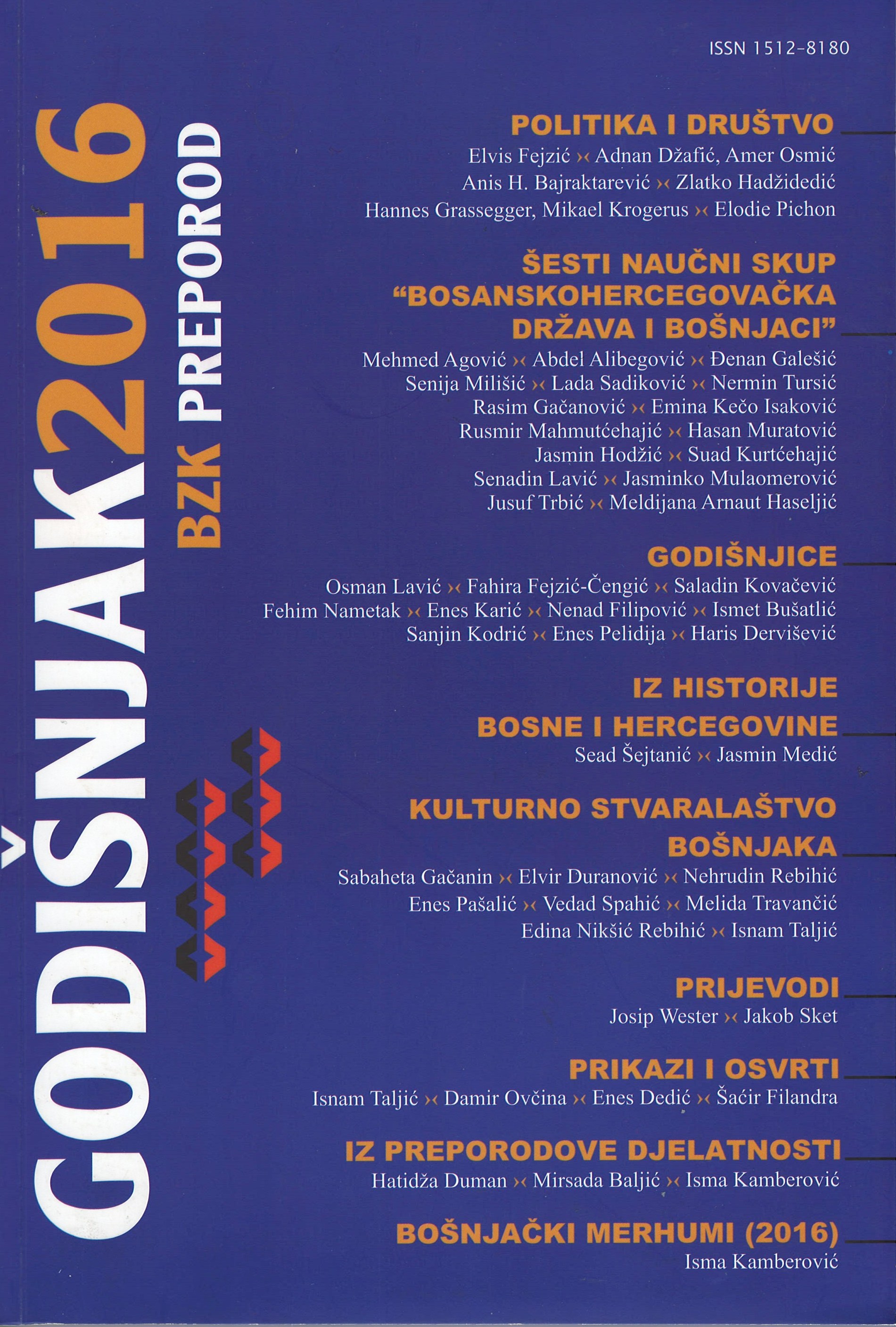Put Bosne i Hercegovine u nezavisnost
BOSNIA AND HERZEGOVINIA'S PATH TO THE INDEPENDENCE
Author(s): Suad KurtćehajićSubject(s): Law, Constitution, Jurisprudence, Governance
Published by: Bošnjačka zajednica kulture "Preporod"
Keywords: Bosnia and Herzegovina; independence; Yugoslavia; arbitration commission; referendum;
Summary/Abstract: Bosnia and Herzegovina is established the restoration of its statehood lost in 1463 by fall under the Ottomans at the First session of ZAVNOBiH held on 25 and 26 November 1943. That statehood was achieved in the Yugoslav federation that after the Tito's death in 1980 has entered into the economic and political problems. SANU Memorandum dated in 1986, which expressed dissatisfaction with the decision of the Serbian national question in Yugoslavia, was the catalyst for the process of the disintegration of the state. Affirmation of Serbian national interests and the awakening of Serbian nationalism by that document, led to the awakening of other nationalisms especially Croatian, Slovenian and Albanian in the area of ex-Yugoslavia. By the dissolution of the Communists Union of Yugoslavia at the XIV emergency congress in January 1990, after Tito disappeared the second cohesion factor of Yugoslavia. The result was that in that year were held multi-party elections in all the republics of the former Yugoslavia and that the communists fell from power in Croatia, Slovenia, Bosnia and Herzegovina and Macedonia. Yugoslav People's Army was the last cohesion factor of the country but, after the declaration of Slovenian and Croatian independence on June 25, 1991 and an unsuccessful attempt to return Slovenia in the legal system of the SFRY, it was placed in positions that it is the Serbian strategic interest. The international community is trying to help the resolution of the crisis and formed the International Conference in The Hague in September 1991, as well as the arbitration commission consisted of the presidents of the constitutional courts of the strongest European countries led by Robert Badinter, the Chairman of the Constitutional Court of France by whom this commission is colloquially called Badinter's commission. The commission takes the attitude that by Opinion No. 1 the Yugoslavia is in dissolution (disintegration) and offers the possibility of applying for the independence of the republics on the territory of the Yugoslavia then. By the Opinion No. 4 of the Badinter's Commission held on 11 January 1992 for Bosnia and Herzegovina was the claim to hold a referendum in order to see the will of its citizens. The referendum was carried out on 29 February and 1 March. Over 64% of BiH citizens entitled to vote and over 99% of those who went to the polls supported the path of Bosnia and Herzegovina to independence. Based on these results, the European Community recognized Bosnia and Herzegovina on 06 April and the USA 7th April 1992 UN 22 May 1992, received Bosnia and Herzegovina in its membership.
Journal: Godišnjak Bošnjačke zajednice kulture »Preporod«
- Issue Year: 2016
- Issue No: 1
- Page Range: 257-269
- Page Count: 13
- Language: Bosnian

